How a group of nobodies made EverQuest and forever changed online gaming.

You don’t know what success feels like until you’ve tanked the biggest internet pipeline into San Diego for a week minimum. Sure, most online games have network issues on day one, but in 1999 EverQuest wasn’t just coughing out innocuous error codes. It was so popular that the internet provider hosting its servers had to physically run more cables to Los Angeles just to accommodate the tens of thousands of players dying to explore its cutting-edge 3D world.
“We used it all,” laughs John Smedley, one of EverQuest’s creators. “All of it. It was the largest internet connection into San Diego, and it was constantly going down. It messed up internet here in San Diego for a good solid week.”
During that seven-day nightmare, every corporation on that network had their online operations sabotaged by a bunch of nerds who’d somehow been given $4.5 million dollars and a mission to create something extraordinary. And for its time EverQuest was nothing if not extraordinary.
It was a Saturday morning in February of 1996 when Brad McQuaid picked up the phone. The man on the other end introduced himself as John Smedley, an executive from Sony Interactive Studios America. As 27-year-old McQuaid struggled to comprehend what was happening, Smedley cut straight to the chase, “I have some good news and some bad news.”
Diese Geschichte stammt aus der May 2019-Ausgabe von PC Gamer US Edition.
Starten Sie Ihre 7-tägige kostenlose Testversion von Magzter GOLD, um auf Tausende kuratierte Premium-Storys sowie über 8.000 Zeitschriften und Zeitungen zuzugreifen.
Bereits Abonnent ? Anmelden
Diese Geschichte stammt aus der May 2019-Ausgabe von PC Gamer US Edition.
Starten Sie Ihre 7-tägige kostenlose Testversion von Magzter GOLD, um auf Tausende kuratierte Premium-Storys sowie über 8.000 Zeitschriften und Zeitungen zuzugreifen.
Bereits Abonnent? Anmelden
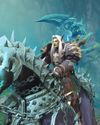
"The War Within itself has kept me coming back most evenings too"
WORLD OF WARCRAFT remains my jailer, and I couldn't be more pleased about it
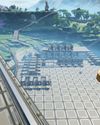
OK BUILDER
SATISFACTORY is the new titan in building and crafting games

HELL YES
DIABLO IV: VESSEL OF HATRED is a transformative expansion
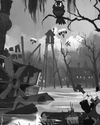
MOUSE: PI FOR HIRE
This mouse wants to be more than just a gimmick

WINDBLOWN
Dead Cells dev's new roguelike has me afraid for my free time

NO MORE ROOM IN HELL 2
As the zombie horde surrounded me just moments after taking down my two remaining teammates, the writing was really on the wall. Armed with just a chef's knife, it was clear I stood no chance, but I was going down swinging, hoping for a miracle... it didn't come.

OWNED BY STEAM
VALVE cordially reminds you that your games aren't yours

CURSE OF THE AZURE BONDS
These classic games haven't aged badly, but I sure have.
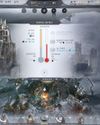
DEEP FREEZE
Endure a blizzard of tough choices and rough consequences in FROSTPUNK 2
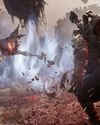
NEW HORIZONS
Building up REMNANT 2 outside the live service game grinder